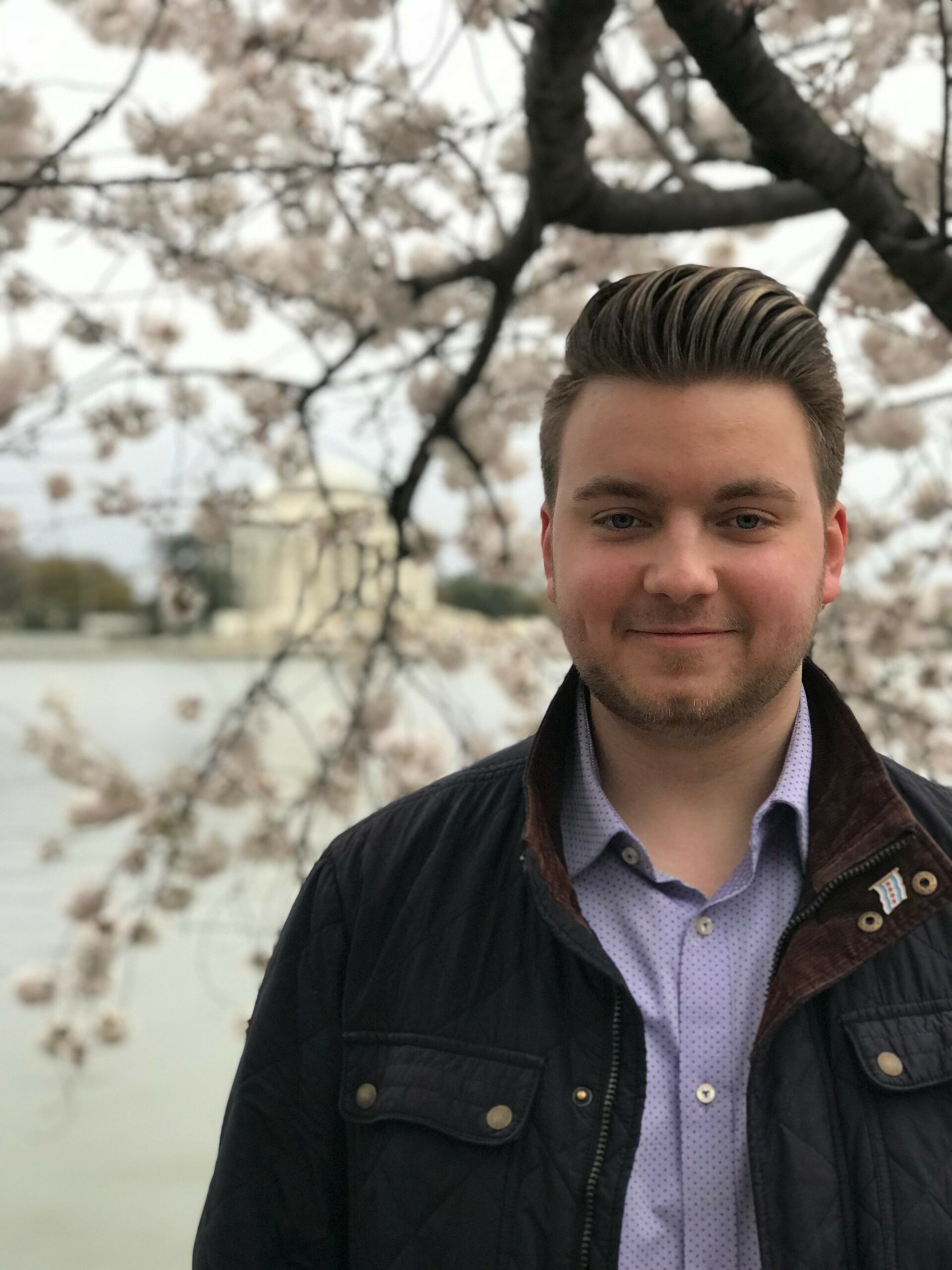We recently connected with Kasper Marona and have shared our conversation below.
Kasper, we’re thrilled to have you on our platform and we think there is so much folks can learn from you and your story. Something that matters deeply to us is living a life and leading a career filled with purpose and so let’s start by chatting about how you found your purpose.
If I may, I would like to slightly adjust the question and instead answer how I have been finding my purpose, or continue searching for it. Like many of us growing up in this constantly changing world, especially amid recent significant events, I found myself continually questioning what I wanted to contribute to the world. There have been pivotal moments prompting this introspection, notably the 2016 election results, the onset of Covid, and the passing of a camp friend. These events underscored the rapidity with which unexpected changes can occur and highlighted our collective unease or rather unpreparedness in navigating such events.
In a world where drastic changes in the status quo and unexpected events happen more frequently, where our sense of community and belonging is persistently challenged, I’ve always felt a calling to contribute positively to society. While recognizing that everyone, in their own way, impacts others, I realized I was not interested in undertaking this journey alone. I was initially drawn to fields like politics or public service, and although you may have just rolled your eyes reading that, I want to acknowledge that I do believe in the genuine intentions of those who endeavor to effect positive change within these spheres.
Contemplating my purpose, words like community, compassion, education, service, and empathy resonated deeply with me. I came to understand that while some individuals opt to confront complex issues directly, others focus on equipping future generations to address them. As a dear friend recently reminded me, addressing monumental challenges such as climate change, geopolitical crises, or mental health trends, necessitates first mastering, or at least practicing, the smaller-scale acts of kindness, empathy, and community-building. We cannot skip to the big issues at hand that are far too great to tackle alone, without first being willing to figure out the smaller ones like being a good friend, a neighbor, a community member, helping those who need help. Tackling the larger issues doesn’t make all that much sense to me if along the way we lose friends and loved ones, if we can’t be there for one another, check in, and build the capacity of empathy with those we interact with often.
Hence, my purpose centers on creating environments where such values can be cultivated and lived. I am committed to establishing a center in the Midwest for Adventure Camps and The Becoming Project, the nonprofits I oversee, to serve as a hub for nurturing these principles and preparing future generations to navigate the uncertainties that lie ahead, both good and not-so-good. I have always had an interest in education but have never wanted to teach within a school or established education system. I think there is so much more to one’s education that can happen beyond school walls and I am interested to see what shape this interest of mine takes on
Let’s take a small detour – maybe you can share a bit about yourself before we dive back into some of the other questions we had for you?
My name is Kasper Marona, and I am a founding member and the director of Adventure Camps, a nonprofit organization dedicated to serving children, teens, and young adults. We are committed to offering transformative outdoor experiences rooted in community, ritual, mindfulness, and character development. Currently, we create spaces through summer camps and conferences where individuals of all ages can reconnect with nature, forge meaningful connections, embark on a journey of self-discovery, and become the best versions of themselves, returning to the wider world with newfound perspectives and empathy.
Although Adventure Camps may be smaller in scale compared to some of our counterparts, we pride ourselves on prioritizing quality over quantity. Our modest size affords us the flexibility to adapt, evolve, and tailor our programs to meet the unique needs of each group, whether on a given day, week, or year.
At the heart of Adventure Camps lies a spirit of kindness and camaraderie that permeates every aspect of our organization. What begins as “camp friendships” often blossoms into lifelong bonds that withstand the test of time, serving as pillars of support through life’s ups and downs. For me, these friendships have been the most important aspect of our camps.
Looking ahead, our vision for Adventure Camps extends beyond our current offerings. We aspire to establish a dedicated center in the Midwest—a hub for camps, conferences, retreats, workshops, and more. We hope that this center will serve as a beacon of inspiration and innovation, inviting schools, communities, and organizations to join us in co-creating a brighter future.
Looking back, what do you think were the three qualities, skills, or areas of knowledge that were most impactful in your journey? What advice do you have for folks who are early in their journey in terms of how they can best develop or improve on these?
I’ll begin by looking at our leadership model within Adventure Camps. I think often, the concept of leadership conjures images of individuals who are assertive, dominant, and authoritative, commanding the attention and respect of the people around them. I vividly recall moments from my school days when individuals were praised as future leaders, despite their approach differing greatly from the type of leadership I admired. I often wondered why those issuing commands received more recognition than those actually doing the hands-on work. This discrepancy fueled my fascination with leadership, sparking frequent discussions on the topic with those around me.
At Adventure Camps, we embrace horizontal leadership, also known as collaborative leadership. This model is built on principles of collaboration, trust, and shared decision-making. Instead of a hierarchical structure where authority trickles down from the top, we operate as a unified team, each member contributing their unique skills and perspectives. Our leadership approach emphasizes mutual respect, open communication, and a willingness to engage in healthy debate and disagreement. As we navigate the complexities of running a camp, both professionally and personally, our strength lies in the depth of our relationships and our collective commitment to our mission. This spirit of camaraderie and collaboration enables us to overcome challenges, seize opportunities, and ultimately fulfill our shared vision of providing transformative experiences for our participants.
Another important area has been communication. Communication, as we all know, is key to just about everything. I want to focus on a more particular part of communication, which is listening, or more specifically, active listening. I want to be clear that I have by no means mastered this art form, but it is nonetheless something I strive towards and try to practice, even though as those around me can attest I could talk for hours and hours (a bit ironic, I know). I am eternally grateful for those around me with whom I continue to learn alongside. In a world where the pace of change is ever-accelerating, particularly for the youth we serve, the ability to truly listen—not merely hear—is paramount.
With participants disconnected from their devices and the distractions of modern life, our interactions unfold in real time, devoid of the buffering effect of screens or keyboards. This creates an environment where every word, gesture, and expression carries weight, and where the art of active listening becomes an invaluable tool for navigating the intricacies of interpersonal dynamics. I like to think of active listening as extending beyond the mere act of hearing words; it encompasses a deeper level of engagement that involves tuning into subtle nuances, deciphering unspoken cues, and discerning the underlying currents of group dynamics. It requires a heightened level of awareness—a commitment to being fully present and attuned to the needs, concerns, and emotions of those around us. I always think of listening as going beyond that which is being offered to us freely. The camps require us to have a sense of things not just based on what we are told or can see but a combination of all our senses. In this sense, I suppose I treat active listening more like sensing or perceiving.
I’ve talked about leadership and listening and now I’d like to get into goal setting and executing. Everyone has goals whether personal or professional, and we all struggle at some point with the goals either set or expected of us or those we impose upon ourselves. What I’ve been learning through this journey is how to better balance goals, whether short-term or long-term, personal or professional, easily achievable or somewhat of a reach. I have been learning how to stride towards goals and also knowing where to make edits, sacrifices, and compromises along the way. My advice would be that if you have important goals that you truly wish to accomplish, do not lose sight of them, but be willing and flexible with how you get there, on the details and the journey.
I’m speaking a bit for others who work alongside me, but I would say that we all have really strong goals and visions for our future, and what we get caught up with sometimes is the first few steps in those details which in turn can make the further off goals seem overwhelming.
One last piece of advice I would offer is to lean, rely and care about your friends. We hear so much about professional networking but don’t overlook those closest to you. I’m constantly amazed by what every one of my friends is currently doing and also their hopes, ambitions, and dreams for the future. I always get new ideas, and plenty of help from friends and love returning the favors as well. I believe our happiness, our success is rooted in those around us, in the connections we are able to establish and uplift.
I am reminded of a brief analogy I found on social media and will share below:
“A professor gave a balloon to every student, who had to inflate it, write their name on it and throw it in the hallway. After the professor mixed all the balloons up, the students were given 5 minutes to find their own balloon.
Despite a hectic search, no one found their balloon.
At that point, the professor told the students to pick up a balloon and hand it to the person whose name was written on it. Within 5 minutes, everyone had their own balloon.
The professor said to the students: “These balloons are like happiness. We will never find it if everyone is just looking for their own. But if we care about other people’s happiness, we’ll find ours too”
What do you do when you feel overwhelmed? Any advice or strategies?
In moments of overwhelm, whether in my professional or personal life, I’ve found it beneficial to step away from the source of stress for as long as I can manage. This might involve taking a drive, walking by the lake, going for a stroll, or simply relaxing in a hammock. Most importantly, I make it a point to connect with friends and engage in conversation about anything but the source of my stress.
Breaking up the feeling of overwhelm and preventing it from festering or intensifying is key. Movement, in particular, helps me disperse that overwhelming sensation throughout my body, rather than allowing it to dominate my thoughts.
When feeling overwhelmed, it’s helpful to focus on accomplishing small tasks that are more manageable. Remind yourself that this feeling is temporary and will pass. Opening up about your feelings to someone you trust is crucial; sometimes, simply discussing it can provide relief. As cliché as it may sound, taking any action, no matter how small, is better than doing nothing at all.
I highly recommend having mentors in life—individuals you can turn to for advice or simply to check in with. Their guidance and support can offer valuable perspective, which is often key to overcoming a challenge you are facing.
Contact Info:
- Website: www.theadventurecamps.org
- Email: info@theadventurecamps.org
- Facebook: Adventure Camps
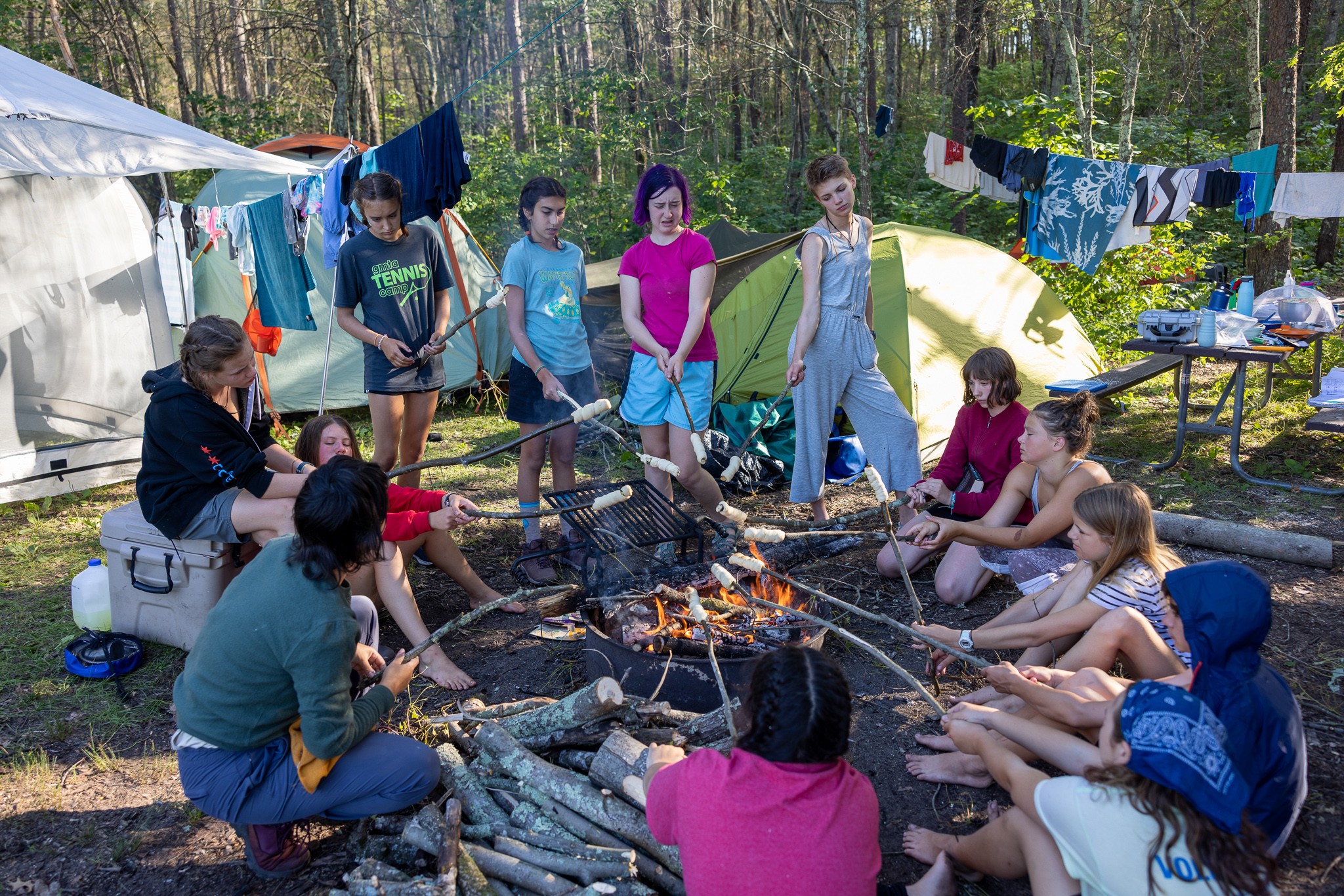
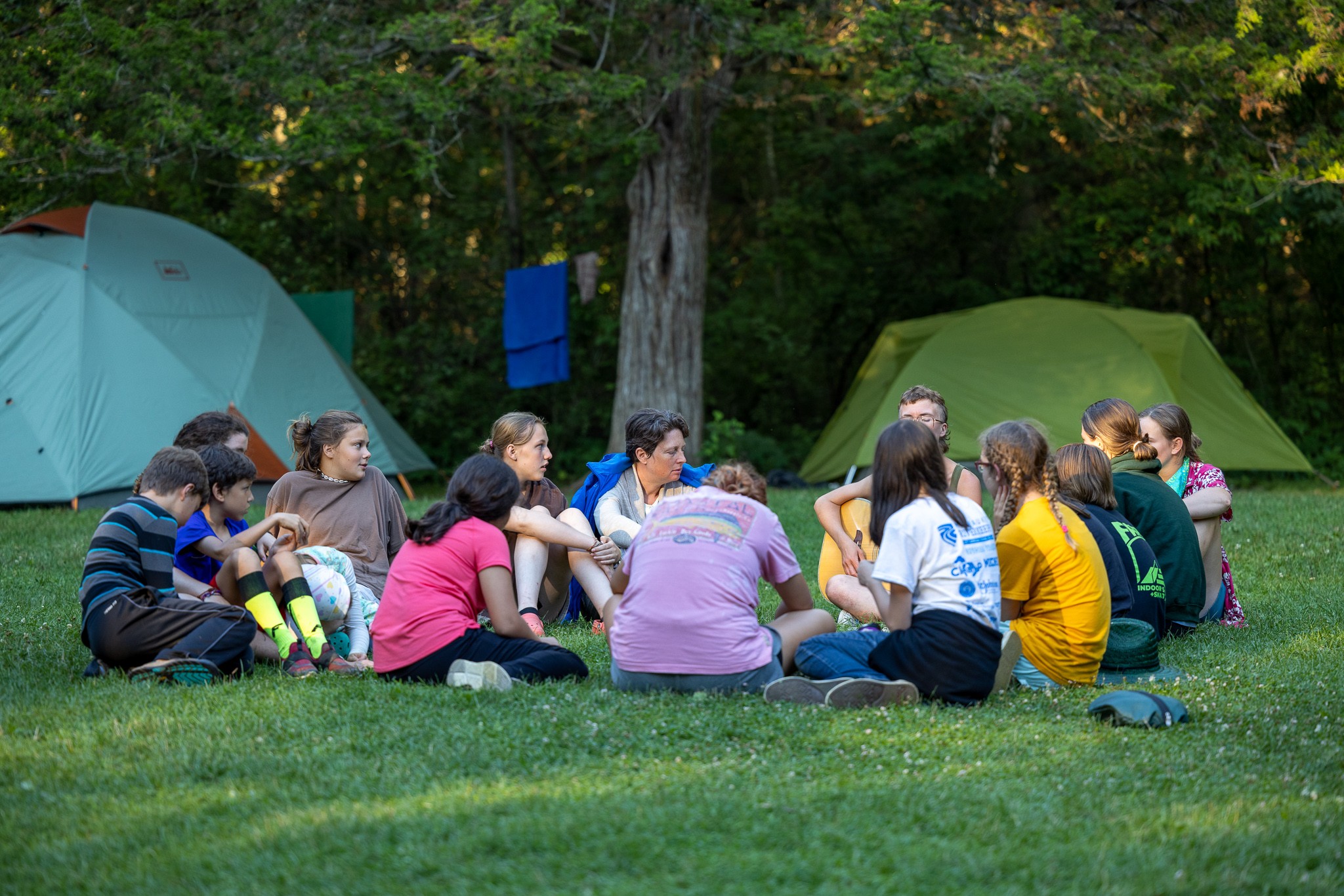
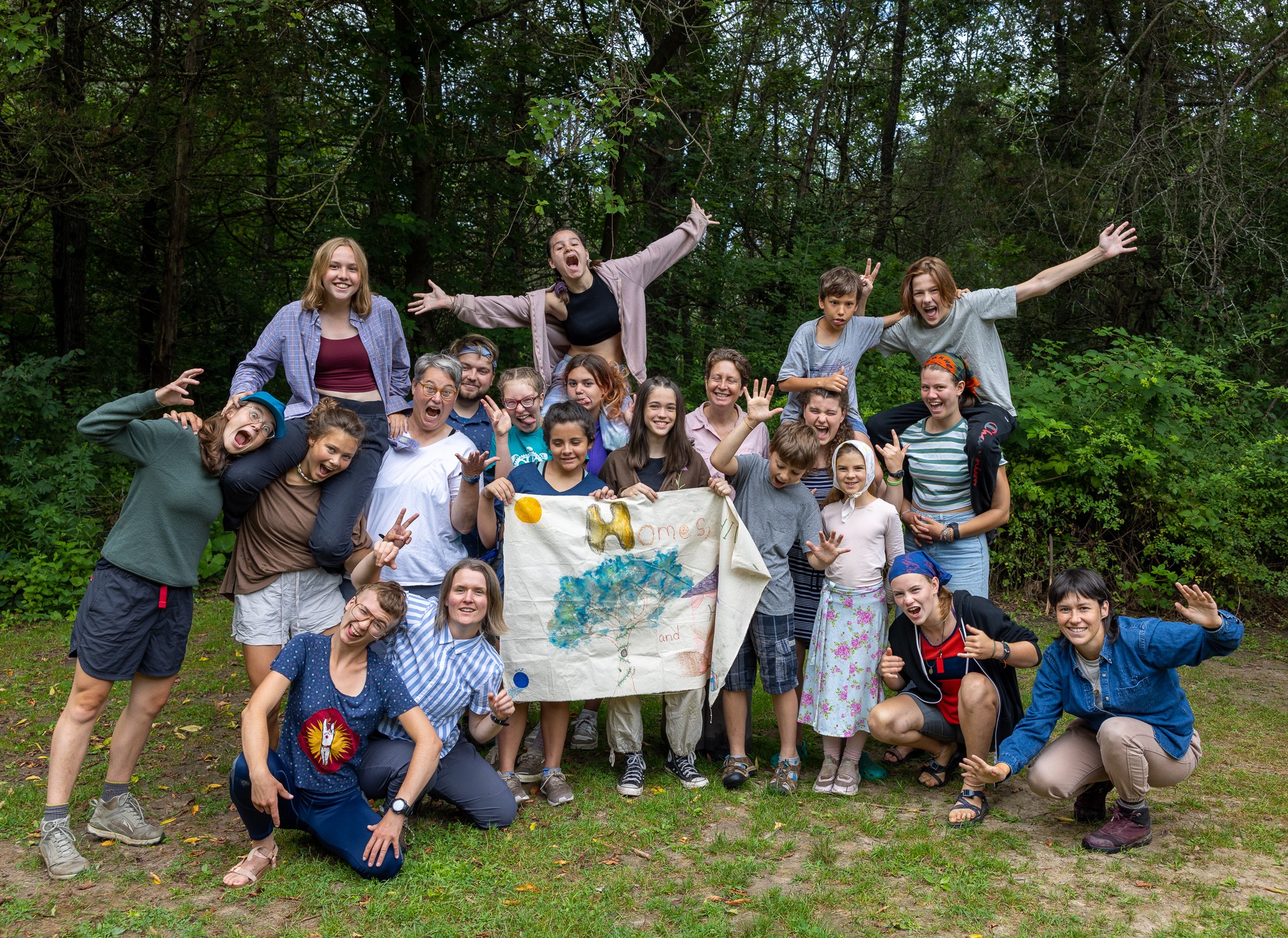
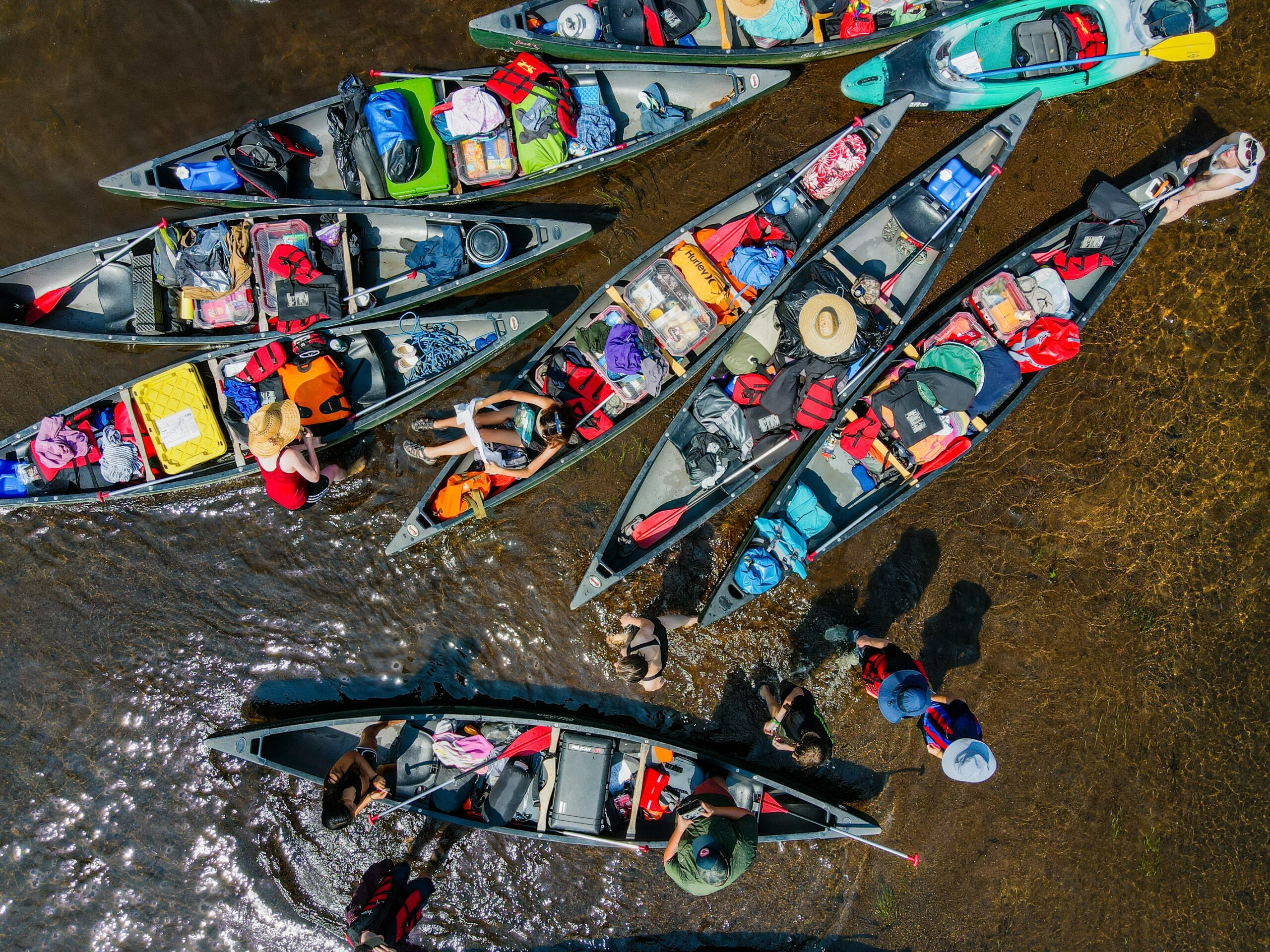
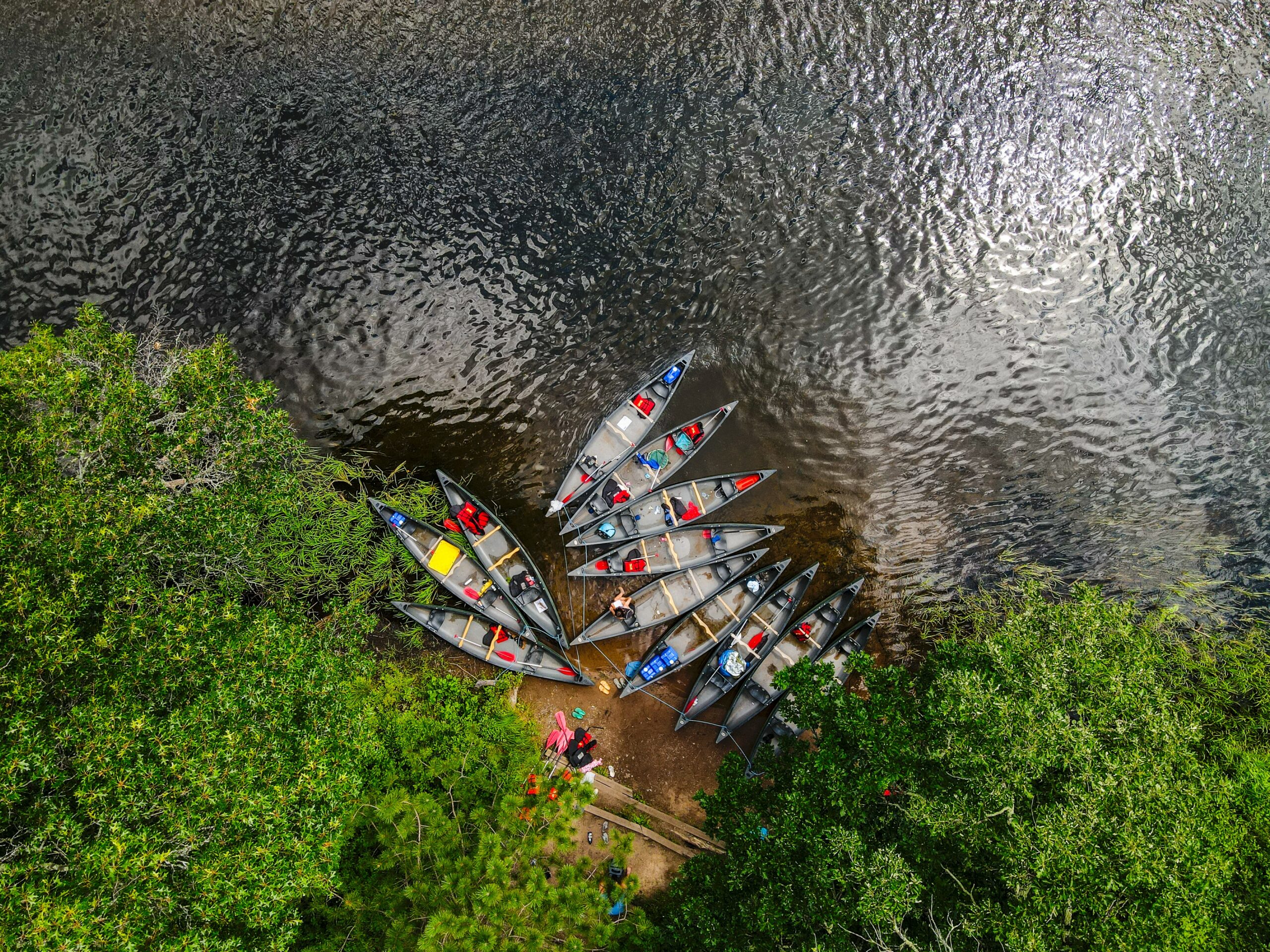
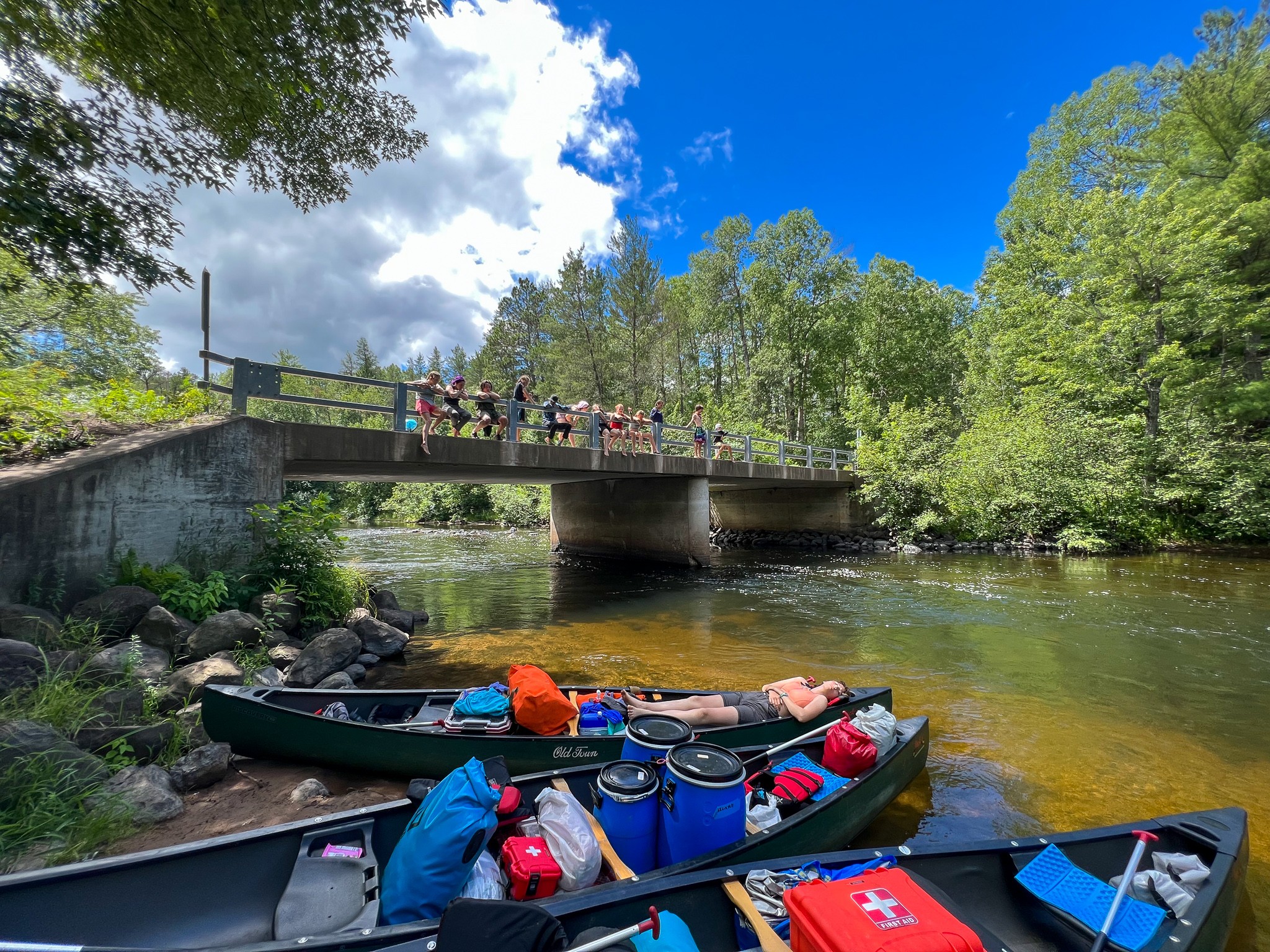
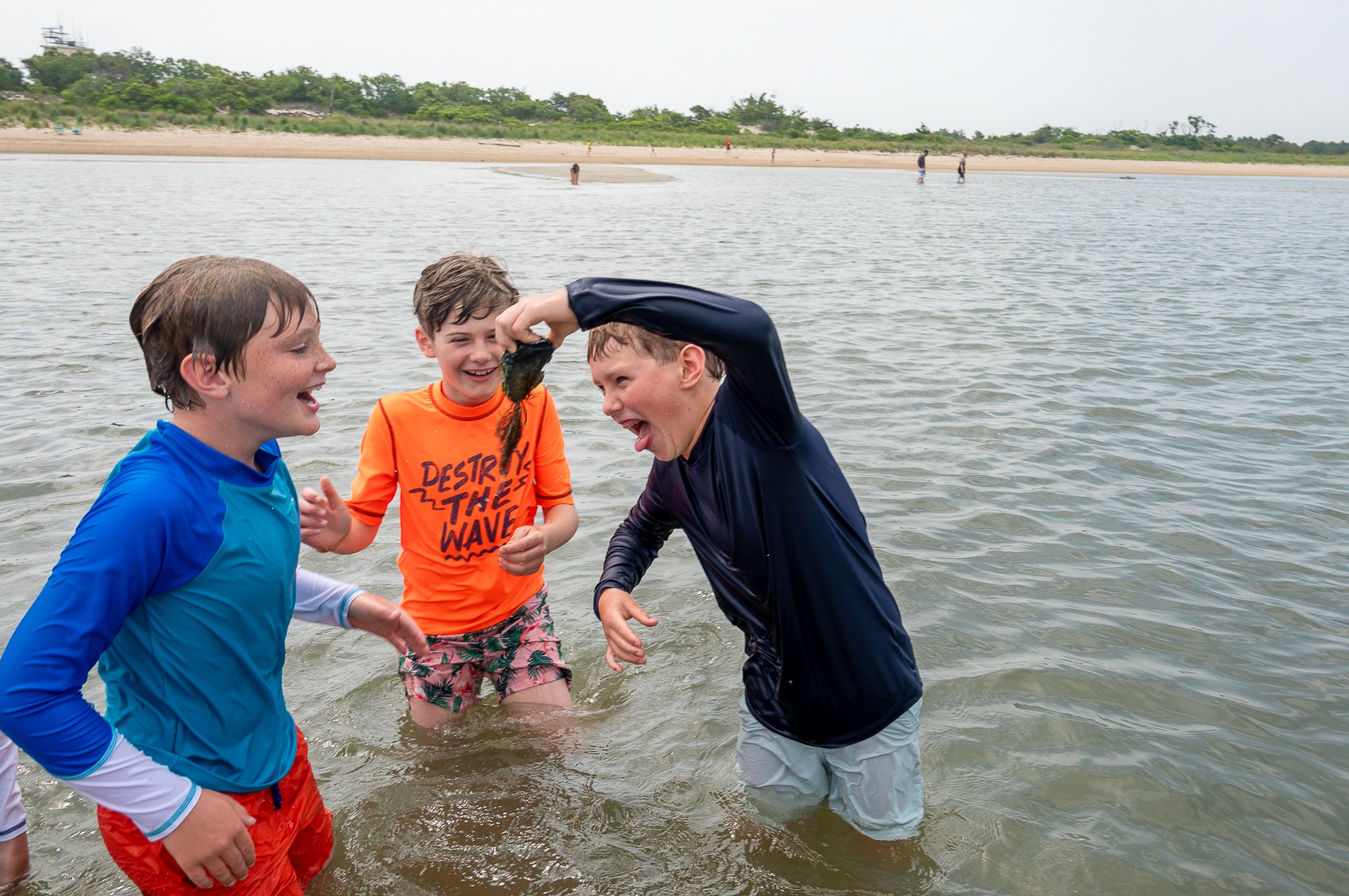
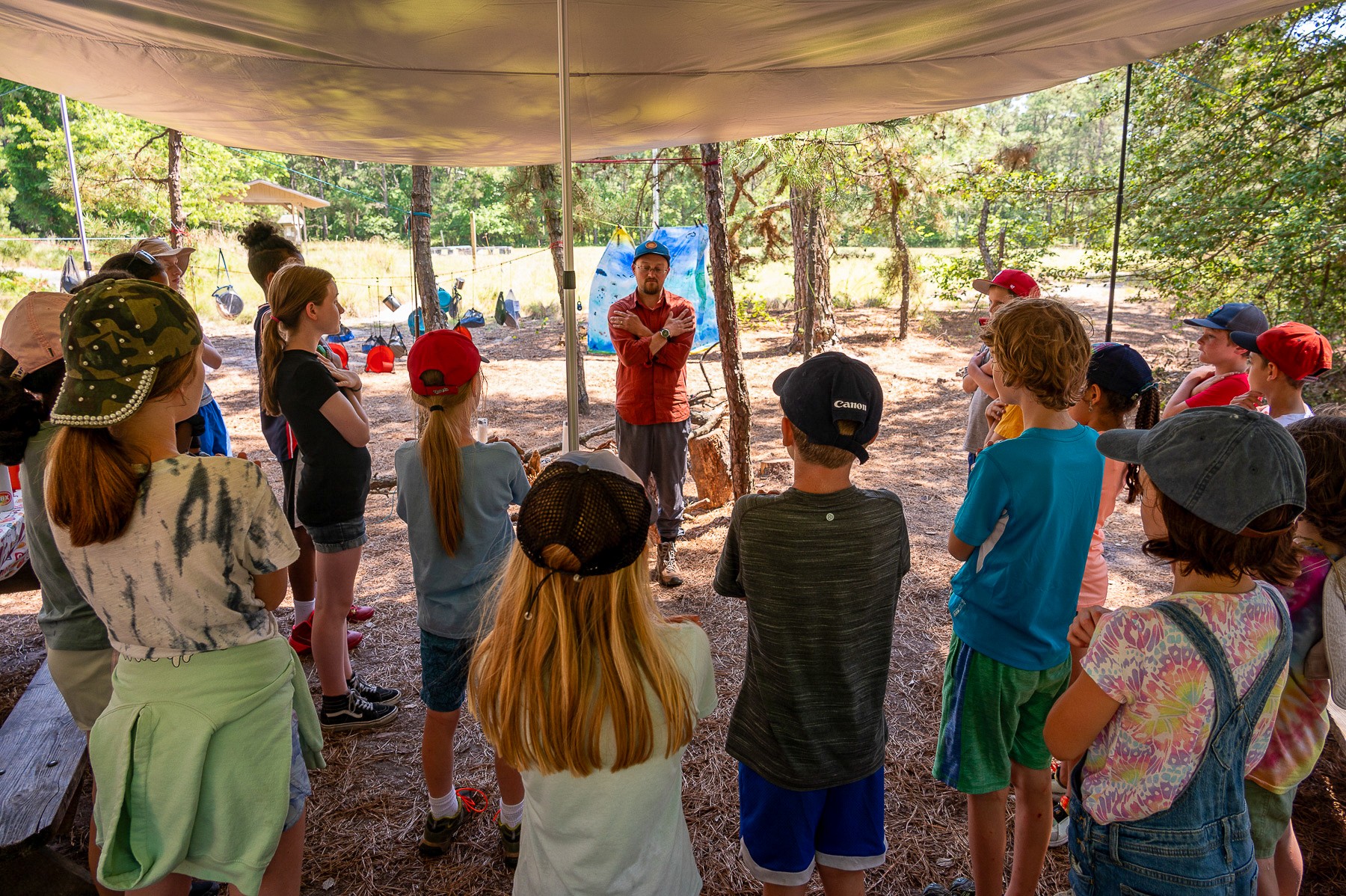
Image Credits
Kasper Marona and Kevin Hertle

